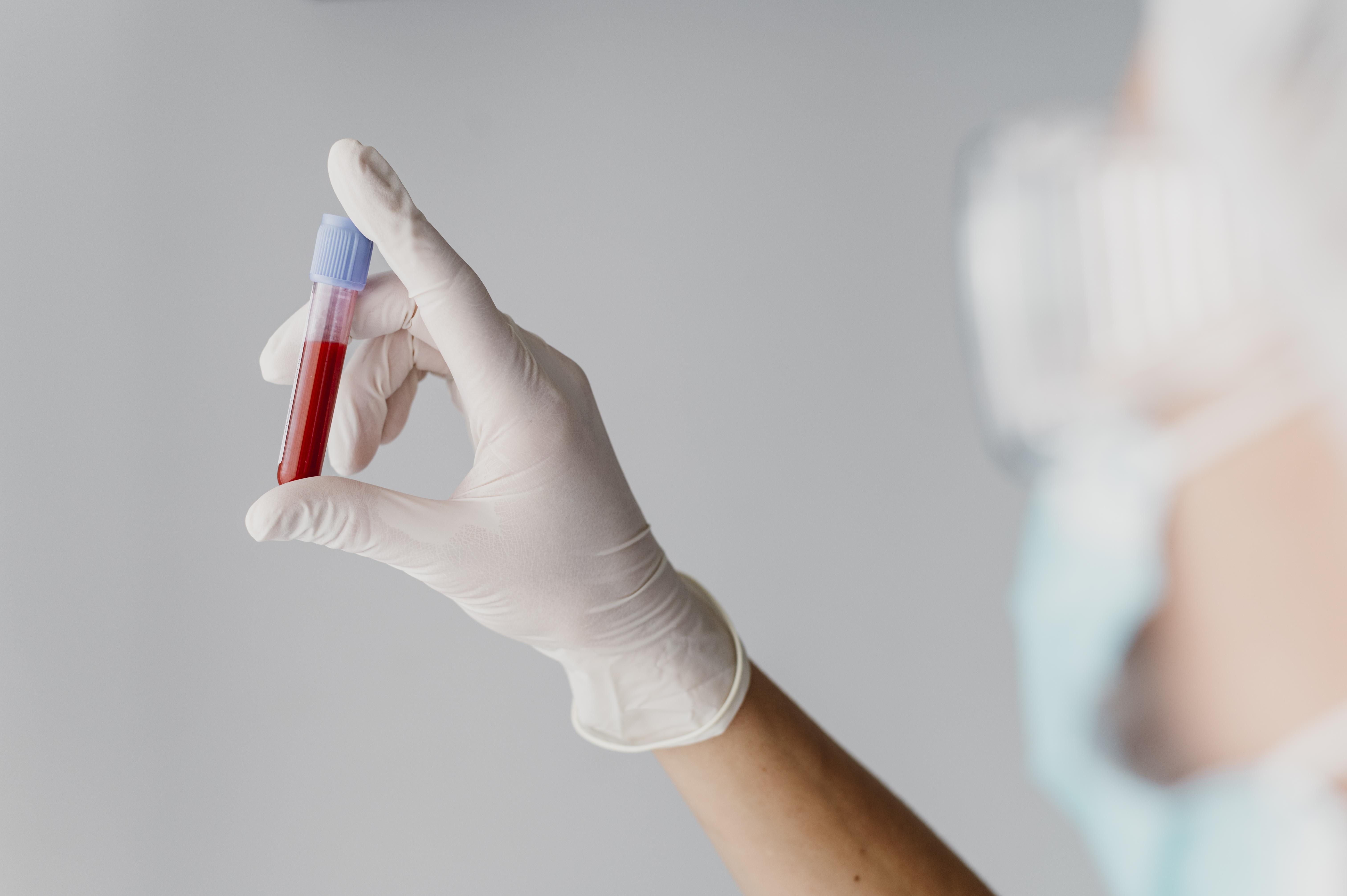Definition
GGT or gamma-glutamyl transferase test measures the concentration of GGT enzyme in the bloodstream. GGT is distributed throughout the body, with predominant presence in the liver. When liver tissue is damaged, GGT may be released into the circulation. Elevated GGT levels in the blood can indicate liver or bile ducts disease. Bile that is produced by the liver plays a crucial role in the digestion process.
Although a GGT test cannot pinpoint the specific cause of liver disease, it is often conducted together with other liver function tests, particularly ALP or alkaline phosphatase test. ALP is also another liver enzyme, where it could be assessed not only in diagnosing liver disorders, but ALP test can be used to assess bone condition. This combined approach aids in comprehensive evaluation of liver-related pathologies.
Indication
The GGT test plays a role in identifying liver disease and bile duct obstructions. It is typically ordered alongside other liver function assessments such as ALT (alanine aminotransferase), AST (aspartate aminotransferase), ALP, and bilirubin tests. While an elevated GGT level generally signals liver damage, it does not provide a specific diagnosis for the underlying condition responsible.
The GGT test also serves as a screening tool for chronic alcohol abuse, as around 75% of chronic drinkers exhibit high GGT levels. It is also valuable in monitoring alcohol use and abuse during the management of alcoholism or alcoholic hepatitis.
Additionally, the GGT test aids in clarifying the cause of elevated ALP levels. While both ALP and GGT enzyme levels rise in bile duct diseases and certain liver disorders, only ALP elevations are indicative of bone diseases. Therefore, if GGT levels remain within the reference range despite elevated ALP results, bone disease is more likely the cause.
We also have an article on bilirubin which you can read here: Total Bilirubin - Definition, Indication and Contraindication.
Contraindication
There are no individuals for whom it is advised against to check their serum gamma GT level; everyone is eligible to undergo blood tests for monitoring the levels of gamma GT in their bodies.
Preparations Prior to Test
Whether or not you need to stop taking any of these medications for the test depends on your physician's instructions. Numerous medications and supplements have the potential to influence GGT levels, so it’s important to ensure your doctor is aware of any medications or supplements you may be taking prior to undergoing the test.
Medications that may elevate GGT levels include:
- Acetaminophen
- Alcohol
- Anticonvulsants, such as carbamazepine, phenytoin or phenobarbital
Medications that may lower GGT levels include:
- Birth control pills
- Clofibrate
In some instances, your doctor may advise discontinuation of medications prior to the test. It's crucial to follow your doctor’s guidance and only cease medication use if specifically instructed to do so. Additionally, stopping alcohol consumption for at least 24 hours prior to the test may be recommended, as even small amounts of alcohol can elevate GGT levels.
Test Procedures
A healthcare professional will extract a blood sample from a vein, usually in your arm, using a tiny needle. Once the needle is placed, a little sample of blood will be drawn into a test tube. You may experience a slight stinging sensation when the needle is inserted or removed.
Normal and Abnormal Values
The typical range for GGT levels in both adults and children is approximately 5-40 IU/L (international units per liter). However, it's essential to acknowledge that normal value ranges may vary slightly among different laboratories due to variances in testing methods and reference populations.
Moreover, it's crucial to understand that newborn infants often present with markedly elevated GGT levels immediately after birth. This elevation is considered a normal physiological response and does not necessarily indicate any underlying health concerns.
Normal or low level of GGT typically suggests a low likelihood of liver disease. However, low GGT levels may also be observed in certain genetic disorders characterized by impaired bile flow from the liver.
Elevated GGT levels in the blood may indicate leakage of GGT from the liver into the bloodstream, suggesting liver or bile duct damage. The extent of elevation correlates with the degree of liver damage an individual experiences. Therefore, monitoring GGT levels provides valuable insights into liver health and function.
Results and Suggestions (Follow-Up Tests)
While the GGT test is valuable for diagnosing liver damage, it cannot pinpoint the specific underlying cause. If GGT levels are elevated, additional diagnostic tests could be requested to determine the precise cause. Generally, higher GGT levels correlate with greater liver damage.
Several conditions can lead to elevated GGT levels, including:
- Alcoholism
- Liver disorders, such as tumor, cirrhosis, fatty liver or chronic viral hepatitis
- Exposure to certain toxins
- Certain medications overuse
- Diabetes
- Heart failure
- Pancreatitis
Consult to The Right Doctor
Liver damage is a serious condition that can potentially lead to various health complications. Depending on the severity, the damage may also be irreversible. By analyzing GGT levels in conjunction with other test results, doctors can gain insights into the presence and extent of liver damage, enabling them to formulate appropriate management strategies.
Talk with your doctor or internist about what your results may mean. Be sure to consult your doctor if you have any symptoms related to liver damage so they can test you, uncover the cause, and get you started on a treatment regimen.
Want to know more information about laboratory, radiology and other examination results? Click here!
- dr Hanifa Rahma
Gamma Glutamyl Transferase (GGT) Test. (2021). Retrieved 24 January 2023, from https://medlineplus.gov/lab-tests/gamma-glutamyl-transferase-ggt-test/
Gamma - Glutamyl Transferase (GGT) Test. (2021). Retrieved 24 January 2023, from https://my.clevelandclinic.org/health/diagnostics/22055-gamma-glutamyl-transferase-ggt-test
Gamma-glutamyl Transpeptidase (GGT) Blood Test. (2023). Retrieved 24 January 2023, from https://www.mountsinai.org/health-library/tests/gamma-glutamyl-transpeptidase-ggt-blood-test
What to Know about the GGT Test. (2023). Retrieved 24 January 2023, from https://www.medicalnewstoday.com/articles/325199
GGT Blood Test (Gamma Glutamyl Transferase/Transpeptidase). (2022). Retrieved 24 January 2023, from https://www.testing.com/tests/gamma-glutamyl-transferase-ggt/
Gamma - Glutamyl Transpeptidase (GGT) Test. (2023). Retrieved 24 January 2023, from https://www.healthline.com/health/gamma-glutamyl-transpeptidase
What is a GGT Test. (2021). Retrieved 24 January 2023, from https://www.webmd.com/hepatitis/ggt-test
Gamma-Glutamyl Transpeptidase. (2023). Retrieved 24 January 2023, from https://www.urmc.rochester.edu/encyclopedia/content.aspx?contenttypeid=167&contentid=gamma_glutamyl_transpeptidase












